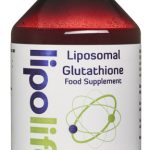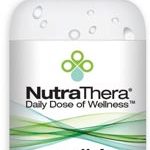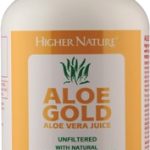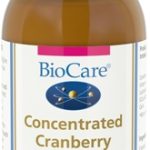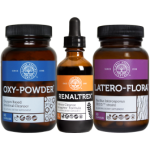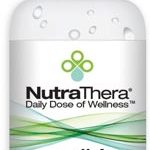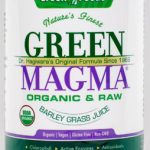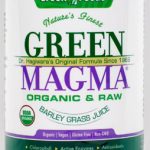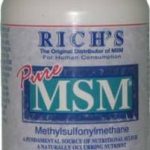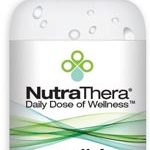Chances are you’ve heard of toxins. And if you’ve heard of toxins you’ll have probably have heard of detoxification – which, in simple terms, is the practice of removing toxins from the body. A large array of different illnesses can be caused by the consumption and absorption of toxins – or toxic substances – into the body. To that end then, detoxification is all about reducing the opportunity for these ailments and conditions to develop or, should they have already developed, treating them via a number of tests and techniques – many of the latter ideally being derived from natural sources.
What can detoxification do for you?
As noted then, giving your body a detox may prove to be of great benefit should you suffer from one or more of many varied chronic diseases or conditions. What sort of ailments are we talking about here? Well, everything from diabetes to digestive disorders; high cholesterol to low blood-sugar levels; allergies to arthritis; anxiety to depression; and obesity to chronic infections. Essentially, the reason for this is because all these conditions are likely to be – whether you’re aware of it or not – influenced by environmental factors. Of course, some people can be exposed to high levels of toxic substances due to their occupation and living arrangement or merely by accident, but unfortunately in today’s world, billions of us are increasingly being exposed to more and more toxins on a daily basis.
Furthermore, if you’re a long-time sufferer of immunity issues or one or more allergies then there’s a good chance that detoxification – via testing and a resultant toxin cleanse – could do you a lot of good. Indeed, it may be that in these cases, conventional modern, synthetic medicine has both failed to correctly diagnose and successfully treat exactly what’s wrong with you – the likes of chronic fatigue syndrome, multiple chemical sensitivity, environmental illness or fibromyalgia (a body-wide pain-causing condition that also inhibits mental/ memory function). Symptoms to such conditions are obviously very varied, but together commonly include allergic reactions, hypersensitivity to commonplace chemicals and materials, insomnia, reduced resistance to infection, low-grade fever, insomnia, aches and pains and intolerance to particular food ingredients. If you find yourself often – or simultaneously – suffering from these symptoms, don’t doubt it; detoxification could well help.
The origins of detoxification
As you may have guessed, the idea of purifying the body of harmful things that find their way into it isn’t new. Civilisations have for centuries believed in, nay sworn by their versions of detoxification. Indeed, in the practice of medicine across the millennia, fasting has been deployed as a ‘purifying’ technique since the year dot – the ‘father’ of Western medicine, the ancient Greek visionary Hippocrates (on whose name modern doctors take their oath), highly recommended fasting.
You may also be aware that detoxification traditionally plays a prominent role in so-called alternative medicine – much of whose philosophy and techniques are derived from those of age-old civilisations. And now, conventional medicine is also waking up to the power of cleansing the body of toxins and detoxification benefits; appreciating, as it now does, the influential role environmental factors play in a worryingly high number of ailments. Asthma, chronic fatigue syndrome, multiple chemical sensitivity and, indeed, cancer are all examples of such illnesses that are often attributable to (multiple) toxin or allergen exposure. Believe it or not, the United States’ Centers for Disease Control now claims that the cause behind more than eight in every 10 illnesses lies in environmental or lifestyle factors.
It’s not the just the experts who are waking up to the positive power of detox, however; increasingly so large numbers of the public are too. For instance, more and more people are seeking to rid their bodies of ‘heavy metal’ poisoning via detoxification. The toxicity of ‘heavy metals’, including arsenic, cadmium, lead and mercury, can do untold damage to the human body.
Toxin bioaccumulation
Meanwhile, through media coverage, people are becoming ever more aware of the dangers posed by synthetic agriculture chemicals, which find their way not just into the food we eat, but also the water we drink and even the air we breathe in. There’s much debate over genetically modified organisms (GMOs) in crops, but the use of pesticides and herbicides in agriculture is far from diminishing – in the US alone, almost 4.5kg of the stuff is in the food supply, per person per year.
To that end, it’s become almost impossible to avoid the toxins present in much of the food, drink and more we consume everyday. The pesticides and herbicides sprayed on crops aren’t just present in these crops then, but in the fatty tissue of animals that feed on them and these animals, like it or not, tend also to be injected with synthetic hormones and antibiotics; all of which we, as human beings at the top of the food chain, readily consume. So we’re exposed to the full gamut of harmful chemicals added at the different stages of the agricultural process. Experts refer to this as a bioaccumulation of toxins – and it’s precisely this that, over the years, can cause ailments like asthma, chronic fatigue, hypersensitivity to various chemicals and more. All of which means then that people by the barrel-load are turning to detoxification treatment.
Detoxification treatment
So what does detoxification actually involve? The term ‘toxin cleanse’ has cropped up in this article already, but there are one or two things that should take place before the cleansing proper begins. The first all-important step should be eliminating exposure to as many toxic and/ or allergenic substances and materials as possible. Ideally, this should be informed by tests carried out by a trained healthcare professional. That said (as mentioned above), if conventional medicine and its application has failed to pinpoint the actual cause for a sufferer’s ailments then they might conclude to just start eliminating, one by one, as many toxic sources in their life and the environment around them as they can – as Sherlock Holmes opined, once you eliminate the impossible, whatever remains, no matter how improbable, must be the truth!
So, in this scenario, what should you seek to cut out of your everyday experience? Well, think along the lines of heavy metals and other potentially harmful chemicals you come into contact with; that includes then radiation sources (microwaves and x-rays, for instance); polluted water; pesticide- and herbicide-rich food; unnecessary synthetic medication and drugs; caffeine and alcohol; and perfume and scents. The sort of thinking you should apply here extends even to your teeth – do you have fillings? Depending on your age they may have trace levels of harmful mercury; if so, look to have them removed.
Having taken these steps then, you can now move on to the toxin cleanse. First of all, this takes the form of dietary alterations. Switching to a better all-round diet focused on fresh (preferably) organic food and definitely cutting out sugar-heavy, saturate-fat-packed foods is highly advisable, but adopting specific foods here will also aid detoxification (often those that are high in fibre and low in fat; raw vegetable- and fruit-based foods usually get a big up-tick). It’s best to check with a nutritionist and ask them what they advise for you personally.
Detoxification supplements
The second element in your toxin cleanse could well be naturally-derived nutritional supplements crammed full of vitamins and minerals – and so the amino acids, essential fatty acids and antioxidants that are brilliant for driving the flushing out of the digestive and gastrointestinal systems. It’s common among those seeking detox-focused products to go for those that will aid a liver cleanse or a kidney cleanse, or both; it’s an excellent idea, certainly. For starters, though, you may want to take a look at the ‘Detoxification’ section of our website – indeed, by way of example; at The Finchley Clinic we sell (among many detox-promoting products) the following supplements:
Burbur-Pinella – a synergistic combination of the plant extracts Burbur (great for blood, kidney, liver and lymphatic system detoxification) and Pinella (for detoxing the nerves in the brain of aluminium and mercury and supporting the immune system).
Liposomal Glutathione – supporting detoxification, immune health and skin health, the chemical Liposomal is the body’s primary detoxifier and a potent antioxidant; it’s provided in this supplement via the latest, state-of-the-art technique to ensure product stability.
ORËÁ – a whole-body supplement that aims to remove environmental toxins such as biotoxins, heavy metals and solvents from the blood, organs, glands and cellular tissue.


